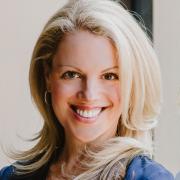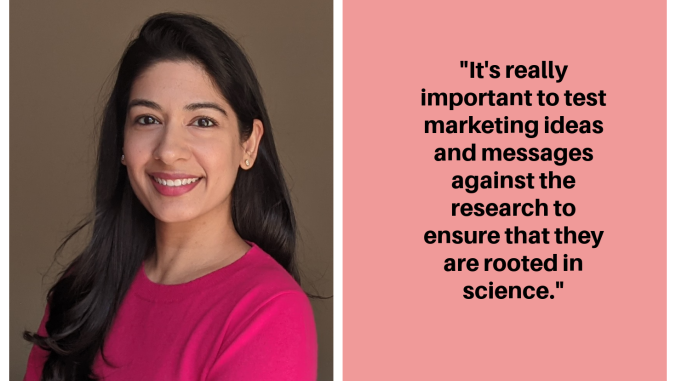Why GDiapers' Nappies are Coming Up Roses
<p>This Q&A explores how gDiapers birthed an interactive marketing phenomenon through building customer advocacy for its disposable diapers.</p>

Green baby products start-up gDiapers is growing up, thanks to a virtual army of 27,000-plus supporters.
I recently caught up with CEO Jason Graham-Nye for a glimpse into this social media success story. Here's why his nappies are coming up daisies.
Cloth or disposable? GDiapers has turned a new answer to this decades-long conundrum into a booming business. Today, earth mothers around the world can choose a diapering solution that combines environmental responsibility and convenience. The beauty of gDiapers lies in the empowerment of its customers. By educating consumers on their options to flush, compost or toss, the company gives buyers room to do as much for the environment as they choose.
From high engagement to high sales, gDiapers' marketing approach is hitting all the marks. Here's a glimpse into CEO Jason Graham-Nye's strategy for escalating customer engagement while increasing environmental and social wellbeing: 
Anna Clark: GDiapers is the first consumer product of any kind to receive the prestigious Cradle-to-Cradle design certification. How did you decide to pursue that?
Jason Graham-Nye: In 2004, we thought green credentials were critical. The University of Oregon found that 95 percent of products are greenwashed (as described in the Greenwashing Index). We had a technical director early on and found that William McDonough's group MBDC was the best. The process really went deep, evaluating our upstream suppliers and their suppliers. They were very willing. All data was exchanged between MBDC and our suppliers so nobody was scared off. When we got upgraded to silver, we worked with our manufacturing partner in Ohio, influencing this larger company to go 100 percent renewable. We're proud of that.
AC: What was it like working with MBDC?
JG: Fascinating. Michael and Bill are like a pair of brilliant mad scientists.
AC: What other certifications do you look at?
JG: The number of marketing scams is terrible. C2C is very respectable. I think B Corp is also very interesting. It's a big deal for a company to say we're going to change our articles of incorporation. That requires board-level commitment.
AC: Virtually all of your company's marketing unfolds online, much of it through word-of- mouth. How do you do it?
JG: We rode two waves: online retail and the onset of social media. We didn't have a store attached to our site when we first launched, but today our biggest customers include Amazon.com and Walmart.com. We've found online a bigger part of our business than even Whole Foods, possibly due to the fact that online allows for more explanation and education.
As for social media, some of our early customers became so engaged that they found a way to create a community even before Twitter and Facebook. One customer offered to moderate a Yahoo user group that grew to 7,000 people. Another customer offered to do a demo at a mother's group. These people have even volunteered for trade shows. They exhibit a huge level of passion.
AC: To what extent have mommy bloggers helped you share your story?
JG: A ton. Our Facebook community numbers over 27,000. The true believers have been enormously important for us. We have customers who willingly do customer service for us.
AC: Is your focus on Facebook over Twitter intentional?
JG: Facebook is a much richer experience. We have focused more on this. I think it's because we're a consumer product. We automated our Facebook wall to go straight to Twitter. Both our Twitter and Facebook pages feed into our customer service software, SalesForce.com, so we can make sure to stay close to our customers.
AC: What makes for a first-rate social media campaign?
JG: We're really accessible and transparent. We shoot our own video and write blogs. The richness of the conversation is evident. For some companies it's forced. For us, it comes naturally. We're not about constantly plugging. We do fun stuff like ask people to post their embarrassing high-school photos. It's a real community.
AC: Most folks aren't going to experience this phenomenon. How can we help others to try to match your success?
JG: Radical transparency is critical. It will then drive what you're really after, which is massive customer advocacy for your product. The level of customer advocacy is so low in most products. Leaders need to get in front of their brands and not hide behind customer service. Tell the truth. If you do something wrong, mend the error of your ways. Make improvements and show your customers that you are listening.
AC: This deviates from traditional marketing. Do you think your company is unusual in listening to your customers?
JG: I got a shellacking from someone on the blogosphere who said that the gDiapers brand is out of control, essentially saying 'the horse has bolted.' On the contrary, by empowering customers we're giving them a stake in our company. It's about trust and faith. When leaders get in front of their brands and stop hiding behind customer service, the brand goes to places you never thought it could.
Saving More than the Environment
AC: Where has sustainability translated into savings for you?
JG: We tracked our power usage in moving from our old office to our new. We achieved instant savings in moving to a new space.
AC: What are your company's accomplishments that you are most proud of?
JG: Seeing green companies adopt green shipping makes me feel really good. We use Greenshipping.com. Every order that ships from us to our customer offsets the CO2. We did a partnership with Daipers.com (now owned by Amazon.com). They agreed to adopt green shipping because of us. I love that we helped a little start-up in Oregon and that it could graduate into Amazon.com
I'm also deeply proud of getting the culture right internally. I think this bleeds over into everything. The cost of attrition is huge on a company. Creating a work environment that is sustainable has been just as important as the product itself. Most companies are so un-family-friendly. We're no longer on the set of Mad Men. We're in 2011. Here at gDiaperS, we offer three months paid maternity leave. We subsidize on-site day care for our team. Kim and I choose to get here at 6 a.m. and leave at 3 p.m. so we can be with our kids at the end of each day. Telecommuting is O.K. with us as long as the work gets done, so we don't require our people to clock in and out.
AC: Where does your attitude come from?
JG: A classically-trained consultant would tell us to cut all these benefits, but we come from a different work culture. My wife is Canadian. I'm Australian. We have a slower pace. In fact, I lived in Japan for five years, and yet I think the culture shock I experienced here was bigger than there. That is how frenetic the pace can be here. My big mission is to prove that our way of doing business is the only way to do business. I'm trying to create a good business case for this.
Wrapping up, Graham-Nye explained that gDiaper's philosophy begins and ends with taking care of people. "We massively believe in the social component of sustainability. Kim and I believe in taking time for family." The company's generosity to employees -- including flextime, telecommuting, subsidized childcare, and ample vacation -- has resulted in a near-zero attrition rate (ultimately a money-saver for gDiaper).
"We've already discovered that one company, even one person, can be the change," Graham-Nye concluded. "Our goal is to transform the way business is done."





